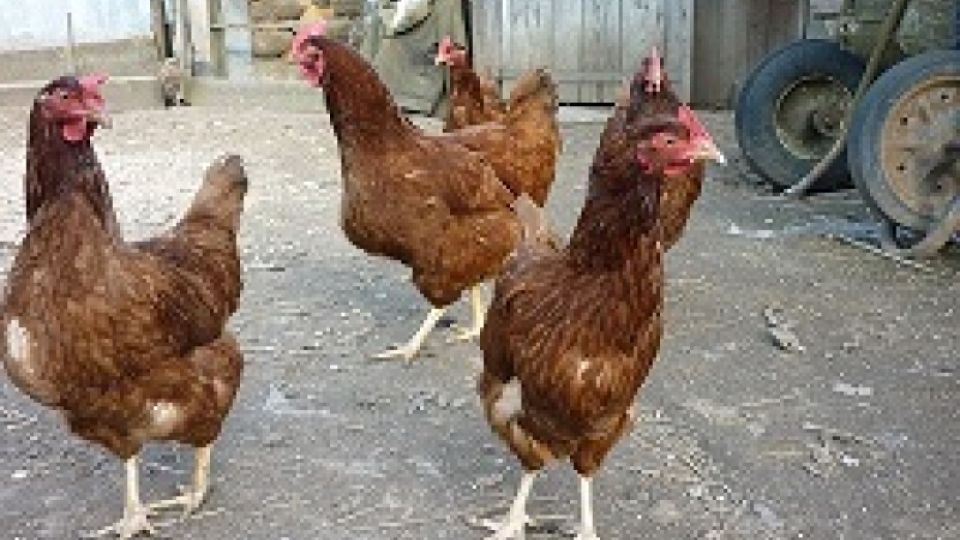Highly contaminated soils that were transported into the premises of the former united agricultural cooperative in Lhenice, Prachatice region pose a threat to human health and to the environment. The non-secured landfills represent one of the most serious environmental burdens in the South Bohemia. The risks are illustrated by results of tests of free range chicken eggs sampled in the vicinity of the premises. The analyses in an accredited laboratory were commissioned by Arnika. The samples contained high concentrations of hazardous persistent organic pollutants. In the case of polychlorinated biphenyls (PCBs) and dioxins (PCDD/Fs), three of four egg samples did not meet the legislative public health limits, in the case of hexachlorocyclohexanes, the limits were not met by two of them. The limits for DDT were met, however, the fact that its concentrations in eggs reached up to 70 % of the set limit is highly worrying in the case of such highly hazardous substance. Because of that, the current efforts of the municipality to buy the plots of land and remediate the site, using available grants, represent a necessary and auspicious advancement.
„I suppose that toxic chemicals are transferred into the surroundings of the landfill by wind – the contaminated soils are not covered or secured in any way. Subsequently, free-range chicken may consume them when looking for food in grass and soil,“ explains the study author, Václav Mach, PhD.. „Wheat and corn grown in the vicinity of the premises with the contaminated soils and used for feeding the chickens may be another possible source of the chemicals in the eggs,“ adds Mach.
„The premises in Lhenice where hazardous waste is deposited represent one of the most seriously contaminated sites in the South Bohemia. The soils deposited there contain PCB concentrations more than 1,700-times higher than the limits set by the corresponding decree for deposition of soils on the surface of the ground. The Ministry of Environment considers the contamination of this site serious, too,“ says Mgr. Jitka Straková, the head of Arnika's branch in České Budějovice. „We hope that decontamination of the site in Lhenice will proceed quickly now. It is a disgrace that solution of the problem took almost 20 years,“ continued Straková.
„In the course of almost twenty years, I exchanged many letters with the Ministry of Environment, the Czech Environmental Inspectorate, the Police, as well as the courts, and I has drawn attention to the time bomb laying and ticking in Lhenice, in the form of the polluted soils. I received a positive response from the vice-ombudsman, Dr. Jitka Seitlová, only, however, nobody has remediated the PCB contamination yet. I am glad that toxic waste will be removed from Lhenice at last. I am not happy that I will lose my plots of land in the vicinity of the former united agricultural cooperative that I could not use for long, but I am still more worried about the injustice and gaps in legislation causing that the inhabitants of Lhenice suffer serious health risk,“ states Jan Podlaha from Lhenice, who draw attention of Arnika to the possible health risks caused by the presence of the unsecured waste.
In the end of the 1990's, the premises of the former united agricultural cooperative in Lhenice became an area for disposal of construction waste and soils containing highly toxic persistent organic pollutants (POPs). Into the premises, the company Enviro Technonology Today transported soils containing polychlorinated biphenyls (PCBs) from the bituminous mixtures coating company in Milevsko, transformer oils, as well as transformers and condensers themselves. A few years after beginning of the operation, the company went bankrupt and left a large part of waste in an open area, accessible to people and exposed to wind and rain.
„Several cases of practices when a waste management company obtains a lot of money from the state budget, intended for decontamination of hazardous waste in contaminated sites, and goes bankrupt subsequently, without decontaminating them, are known in the Czech Republic. In the case of highly toxic substances, such as PCBs and hexachlorocyclohexane, as in Lhenice, it is necessary that the state solves the problem and ensures chemical safety of the inhabitants. It has become obvious that the necessary tools are available. We hope that the grant will cover disposal of soils, oils, as well as of the deposited equipment containing PCBs. We hope that the waste will be disposed of using some of the non-combustion technologies. If it is transported into an incinerator, it will result in production of other hazardous substances showing similar properties as PCBs, namely of dioxins,“ warns RNDr. Jindřich Petrlík, the head of the Toxic and Waste Programme of the Arnika Association.
„The cases of Lhenice in the Prachatice region, and of Hůry in the České Budějovice region, should serve as a lesson for the state administration bodies thanks to which new contaminated sites will not be created, and irresponsible hazardous waste management will not take place, in the future. The procedures for granting licences for operation of similar highly hazardous facilities should be open, and with public participation, minimising the possibility of corruption,“ summarises Jitka Straková the lesson taught in the South Bohemian cases.







